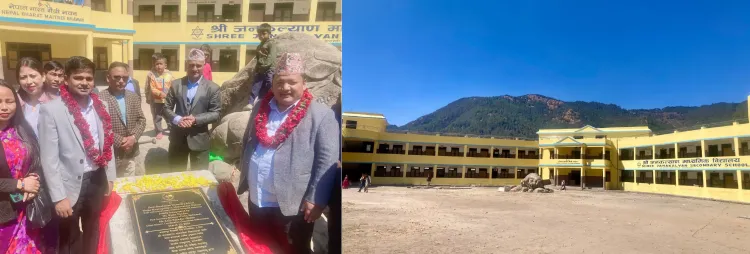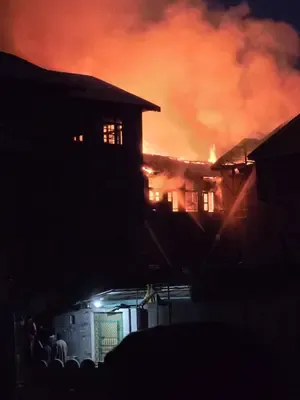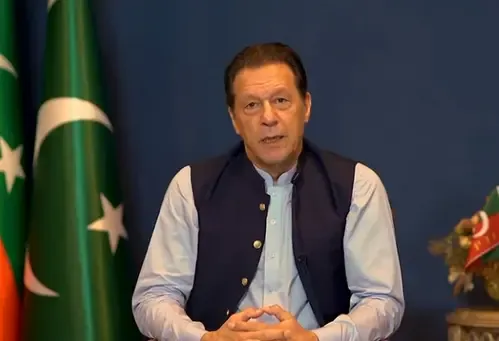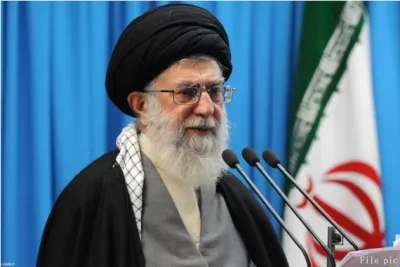School Inaugurated in Nepal with Indian Financial Aid

Synopsis
Key Takeaways
- School funded by Indian government with Rs 30 million
- Located in Makwanpur district, Nepal
- Inaugurated as part of High Impact Community Development Project
- Strengthens India-Nepal developmental cooperation
- Supports educational infrastructure for better learning
Kathmandu, March 19 (NationPress) In a significant step forward in the India-Nepal developmental collaboration, a school funded by the Indian government with a financial aid of Nepalese Rs 30 million was officially inaugurated on Wednesday.
The funds were allocated under the 'Nepal-India Development Cooperation' initiative for the construction of facilities and the building at Shree Janakalyan Secondary School located in Nepal's Makwanpur district.
This project was jointly inaugurated by Lalit Bahadur Ghalan, Chief of the District Coordination Committee in Makwanpur, and Bassist Nandan, First Secretary of the Embassy of India in Kathmandu. The event was attended by various political figures, government representatives, social workers, teachers, students, and their parents. This initiative was classified as a High Impact Community Development Project (HICDP) supported by India and executed through the District Coordination Committee, Makawanpur.
Officials from Nepal, along with school management and other stakeholders, expressed their gratitude for the developmental aid provided by India to the Nepalese populace. They voiced optimism that the new infrastructure would enhance educational opportunities for students and foster a better learning environment, ultimately contributing to the comprehensive growth of the education sector in the region.
As neighboring countries, India and Nepal maintain extensive multi-sectoral cooperation. The implementation of HICDPs underscores the ongoing commitment of the Government of India to support the Government of Nepal in its efforts to develop its people by improving infrastructure in essential sectors, as highlighted by the Embassy of India in Nepal.
India stands as the largest developmental donor to Nepal, with a significant portion of its assistance directed towards large-scale infrastructure projects that are critical for Nepal's swift development, particularly in priority areas such as health, education, and connectivity.
On a related note, Nepal's Foreign Minister Arzu Rana Deuba met with External Affairs Minister S. Jaishankar in New Delhi on the sidelines of the Raisina Dialogue. Deuba remarked, 'A highly fruitful interaction with EAM S Jaishankar. We reviewed bilateral relations, discussed ongoing collaborations across various sectors, and explored opportunities for enhanced people-to-people and diplomatic exchanges. I conveyed my appreciation for India's Neighbourhood First Policy and reiterated Nepal's commitment to prioritizing relations with India,' as posted on X following their meeting.









